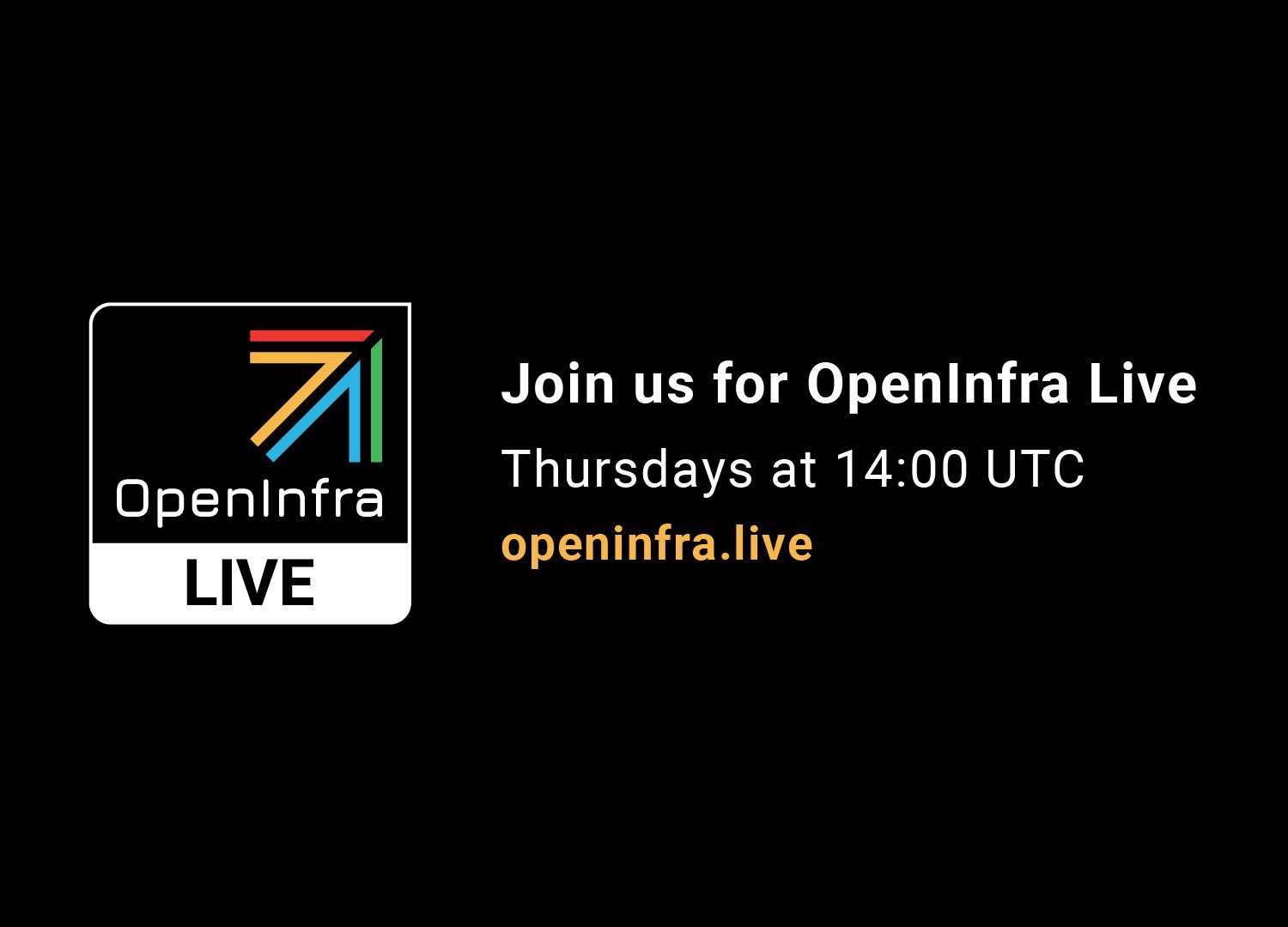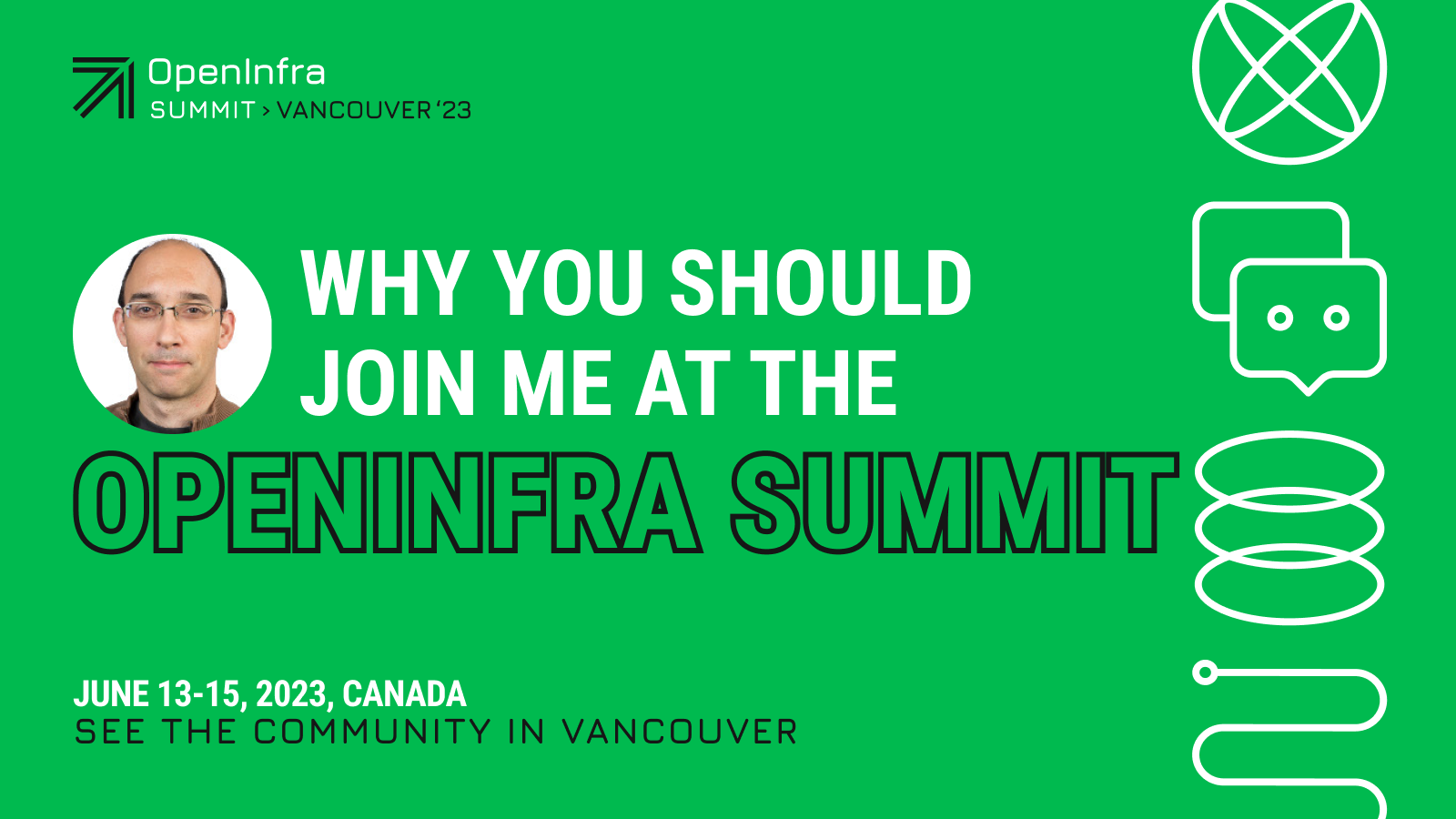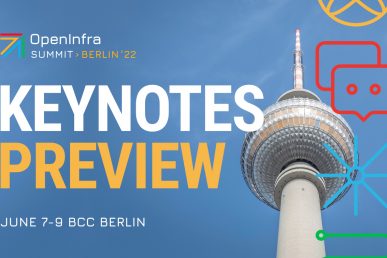OpenInfra Live is a new, weekly hour-long interactive show streaming to the OpenInfra YouTube channel every Thursday at 14:00 UTC (9:00 AM CT). Episodes feature more OpenInfra release updates, user stories, community meetings, and more open infrastructure stories.
Digital Sovereignty is a key concern for the 21st century, especially for Europe. Open source has a major role to play in enabling digital sovereignty, by allowing everyone to access the necessary technology, but also by providing the governance transparency and interoperability necessary for those solutions to succeed. In today’s episode of OpenInfra Live, Johan Christenson, CEO of CityNetwork, hosts a discussion around the role of open source in digital sovereignty between Pierre Gronlier, CTO of Gaia-X, Kurt Garloff, CTO at Sovereign Cloud Stack, and Linda Siwe, Chief Commercial Officer at Binero.
Enjoyed this week’s episode and want to hear more about OpenInfra Live? Let us know what other topics or conversations you want to hear from the OpenInfra community this year, and help us to program OpenInfra Live! If you are running OpenStack at scale or helping your customers overcome the challenges discussed in this episode, join the OpenInfra Foundation to help guide OpenStack software development and to support the global community.
After a brief introduction from all the speakers, Christenson asked the speakers what digital sovereignty meant to each of them.
Garloff mentions that there are two main aspects to digital sovereignty. There is the aspect of data and the role it plays in today’s IT world and secondly when building systems to support this data you must have the ability to change those systems according to your needs. Garloff finishes off with “digital sovereignty is the ability to have control over the data and the infrastructure systems that deal with the data”.
Siwe focused on Garloff’s concept of control in digital sovereignty. For Siwe digital sovereignty is “about being in full control”. She elaborates that similar to the OpenInfra Foundation’s model, “control through collaboration is key to achieving digital sovereignty”.
Gronlier expounds beyond digital sovereignty just applying to the control of data by defining it as “the ability to have the choice and choose what choice you want”. For Gronlier, this applies not only to data but infrastructure and licenses as well.
How does globalization affect digital sovereignty?
Christenson followed up the previous conversation with a question about if the speakers believed digital sovereignty can exist in such a globalized world.
For Siwe this is where the concept of collaboration comes in. In the IT world collaboration has been implemented from day one, but the ability to work collaboratively needs to be “formalized out into the broader society in terms of politics, regulations, etc,” says Siwe.
How does your work relate to digital sovereignty?
Going off of Siwe’s point about the importance of collaboration, Garloff says” one great way of collaborating across borders across the world is to use open source software”. This is where Sovereign Cloud Stack comes in. “Operating a cloud container, infrastructure stack is this difficult task to do. And if you want to do that, you need to build a significant team that has all those skills…and we’re trying to kind of organize that network”.
Siwe mentions that while the customers of Binero, a public cloud provider, are not directly concerned with digital sovereignty, the “awareness is increasing, especially connected to recent cybersecurity attacks and ransomware…”So I think that’s why it’s so important for us as a provider to be the ones taking that responsibility because we’re providing them with the services, we have to make sure that we think about it”.
Gronlier shares a brief description of Gaia-X then goes on to describe different ways of achieving digital sovereignty through autonomy with open source or interoperability. To be able to “migrate [your] workload to another place….that’s a way to gain digital sovereignty without open source”.
Check out the Full Episode on YouTube to Hear More Questions Including:
- What is the relationship between digital sovereignty and cybersecurity?
- How do digital sovereignty and data privacy relate?
- Do you think that there should be regulations to promote digital sovereignty?
- How does open source contribute to digital sovereignty?
- How do you see the future of digital sovereignty?
- Will open source be more difficult to get into in the future?
Next Episode on #OpenInfraLive
A panel of users running OpenStack in production will discuss and answer questions live.
Tune in on Thursday, July 15 at 1400 UTC (9:00 AM CT) to watch this #OpenInfraLive episode: How OpenStack Large Clouds Manage their Spare Capacity.
You can watch this episode live on YouTube, LinkedIn, and Facebook. The recording of OpenInfra Live will be posted on OpenStack WeChat after each live stream!
Like the show? Join the community!
Catch up on the previous OpenInfra Live episodes on the OpenInfra Foundation YouTube channel, and subscribe for the Foundation email communication to hear more OpenInfra updates!
- Inside Open Infrastructure: October 2024 - October 2, 2024
- Inside Open Infrastructure: June 2024 - June 18, 2024
- Inside Open Infrastructure: April 2024 - April 3, 2024

)










